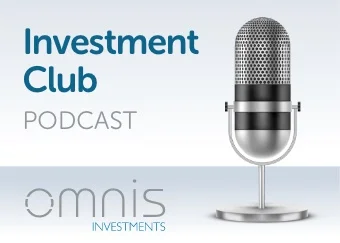How have key events in 2021 impacted markets?
Monday 20 December, 2021
As we approach 2022 Tracy Dove reflects on 2021 and some of the key events from the past twelve months that affected the performance of the investment markets.
- 2020 ended positively for the markets as the UK and EU sealed a free trade deal, US politicians agreed on a further round of economic support measures and the roll out of the coronavirus vaccine began.
- 2021 got off to a good start after the Democrats won a majority in the Senate (the upper house of US politics) giving President Biden a strong mandate to increase government spending. However, the rising number of new coronavirus cases around the world weighed on markets.
- The rapid vaccination rollout continued to drive markets higher in February 2021.
- China led the recovery from the pandemic because it suppressed the virus quickly while US and UK rebounded owing to a combination of fiscal stimulus measures and efficient vaccination programmes. In contrast, the EU had struggled to roll out its vaccine programme efficiently and many countries struggled to contain a third wave. Investors remained concerned about inflationary pressures as economies reopened.
- In April 2021, we began to see positive economic indicators due to the reopening of economies. Equity markets had a strong month fuelled by hopes of this rapid rebound in global growth. In Europe, after a difficult start to the vaccine campaign the pace accelerated significantly throughout the month.
- In May 2021, data showed a sharp increase in inflation numbers, sparking concerns among investors. Central banks reiterated that inflation is likely to be ‘transitory’ providing some relief to markets and despite this, most equity markets ended the month on a positive note.
- Inflation was hotter than expected and in the US the Fed brought forward the timeframe on when it would next raise interest rates. In the UK, ‘Freedom Day’ was pushed back to July, due to an increase in Covid-19 cases.
- Uncertainty about the Delta variant led to a volatile period for stock markets, but fears were alleviated by the expectation of ongoing support from central banks as well as strong corporate earnings. A surge in the growth of prices gave economists renewed concern about overheating economies.
- US economic rebound slowed significantly in August, as in the UK. Meanwhile, the European economy continued to grow at its fastest rate in twenty-one years. Over in China, economic growth slowed due to renewed travel restrictions and natural disasters affecting rates of output, retail sales and investment.
- Financial markets were rocked by the news that Chinese property developer Evergrande would likely default on its interest payments to bond holders. The S&P 500 dropped more than 4% over the month, the worst fall in over a year. The UK’s economic rebound continued to slow, with attention turned to the effects of Brexit on the economy.
- Volatility in markets continued in October due partly to the global shortage of natural gas supplies, but the S&P 500 enjoyed some of its best days since July. The Bank of England warned that the global rise in inflation could slow the UK’s economic recovery.
- Markets rallied for most of the month of November despite inflation remaining high and the global economic recovery slowing down. Towards the end of the month, Omicron, a new variant of the coronavirus spooked markets across the world.
- It continues to be a volatile time for markets as the world continues to face Omicron without knowing much about the transmission rate or the severity of this new variant. Inflation is also dominating investor sentiment, particularly as Omicron could bring further supply chain disruptions across the world.
Tracy Dove, financial adviser in Basildon, Essex and Hertfordshire said:
‘If you are invested in a range of funds within your portfolio these are likely to be spread across different regions of the world and, depending on your attitude to risk, a range of different assets. This diversification reduces the impact on performance of any individual event like the coronavirus crisis. Clients are obviously nervous again due to the appearance of the Omicron variant and the recent volatility we have seen in equity markets. However, it is important to remember that Thomas Oliver financial advisers take a long-term approach to investing. We recommend our clients invest for at least five years, so they are not impacted by short-term events that could cause investment markets to fall.’
In Summary
If you want to diversify your assets and have savings or a pension you would like to invest in 2022 for the long-term, please contact your Thomas Oliver financial adviser. Our financial consultants offer a personalised financial solution for all our clients, and we also offer you a free no obligation investment consultation. Please call our financial planning team on 01707 872000 for more information.
The value of an investment and the income from it could go down as well as up. The return at the end of the investment period is not guaranteed and you may get back less than you originally invested. The contents of this article are for information purposes only and do not constitute individual advice






